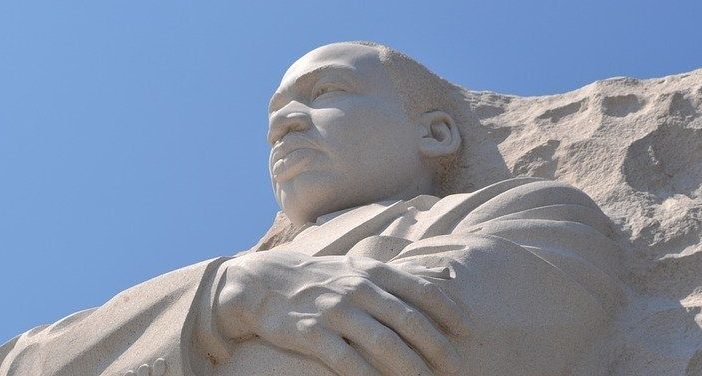

This month will mark the 37th year that we as a nation honor the life and work of Martin Luther King Jr. Now, more than 50 years since his death, we remember MLK’s tireless advocacy for racial equality, nonviolence, collective activism, and of course, his words of inspiration.
I’ve kept him especially in mind while making my way through a few books over the holidays. For any entrepreneur, CEO or member of the innovation community, MLK’s words and legacy continue to have urgent relevance — well beyond the eloquent quotes that gather so many “likes” on social media every January. I recommend a more intentional reading, listening and thinking tour this time around.
For starters, check out Michael Honey’s incredibly engaging recent book: To the Promised Land: Martin Luther King and the Fight for Economic Justice, which chronicles King’s speeches, comments and strategies around bringing greater opportunity to the millions of people he saw “at the bottom of the economic ladder.” MLK certainly wanted to change hearts and minds, but he also understood that business drives change, growth and progress. Honey observes that MLK didn’t advocate that everyone should receive the same pay, but more that everyone should have the same chance to create a better life through access to education, healthcare, and jobs.
When I revisited a favorite from my own library, Ripples of Hope: Great American Civil Rights Speeches, by Josh Gottheimer, I noted how often MLK and other speakers connected economic opportunity to a just society. MLK most definitely considered social justice in an economic framework. We should too — and that requires a greater awareness and openness to supporting entrepreneurs with barriers. For example, I enjoyed VC: An American History, the new book by Harvard Business School Professor Tom Nicholas, which outlines the riveting history and birth of venture capital in the U.S., starting with the financing of whaling voyages and bets on “winning” ship captains and moving to the collective investment by captains of industry in government supported partnership structures, many now centered in Silicon Valley. This is a bold and rich history, but women and people of color will not find themselves in it — even today. For the vast majority of top VC firms, women hold no senior positions. Moreover, a recent HBS study found that black investors make up less than 1% of the industry, and 81% of VC firms don’t have a single black investor. MLK would find this ironic because, as Nicholas notes, “venture capital is based on the premise of financing radical, often revolutionary change.” I think he’d be urgently impatient for industry progress and change, given the human stakes in play.
I do believe that MLK would be speaking out for criminal-justice reform, especially around the myriad post-prison restrictions on jobs, benefits and housing facing returning citizens, who are disproportionately people of color and substantially female. Sadly, much of this would be familiar to him. For far too long, in too many states, a criminal conviction has meant inmate exploitation and post-prison poverty. MLK would be encouraged by programs aimed at these vulnerable returning citizen entrepreneurs, such as Defy Ventures, Project Entrepreneur at BC Law School, Project Remade at Stanford, and the Pivot Program at Georgetown, but he would agree that we can and should do more at the federal and state level to support these efforts — now.
Many rightly revere MLK as an inspiration to the working class and the downtrodden. As we celebrate his life and work again this year, let’s recall not just his soaring rhetoric, but also his central commitment to economic justice.
Read on Boston Business Journal site
Authors & Innovators is an occasional column by Larry Gennari, a transactional lawyer, law professor, and chief curator of Authors & Innovators, an annual business book and ideas festival.




